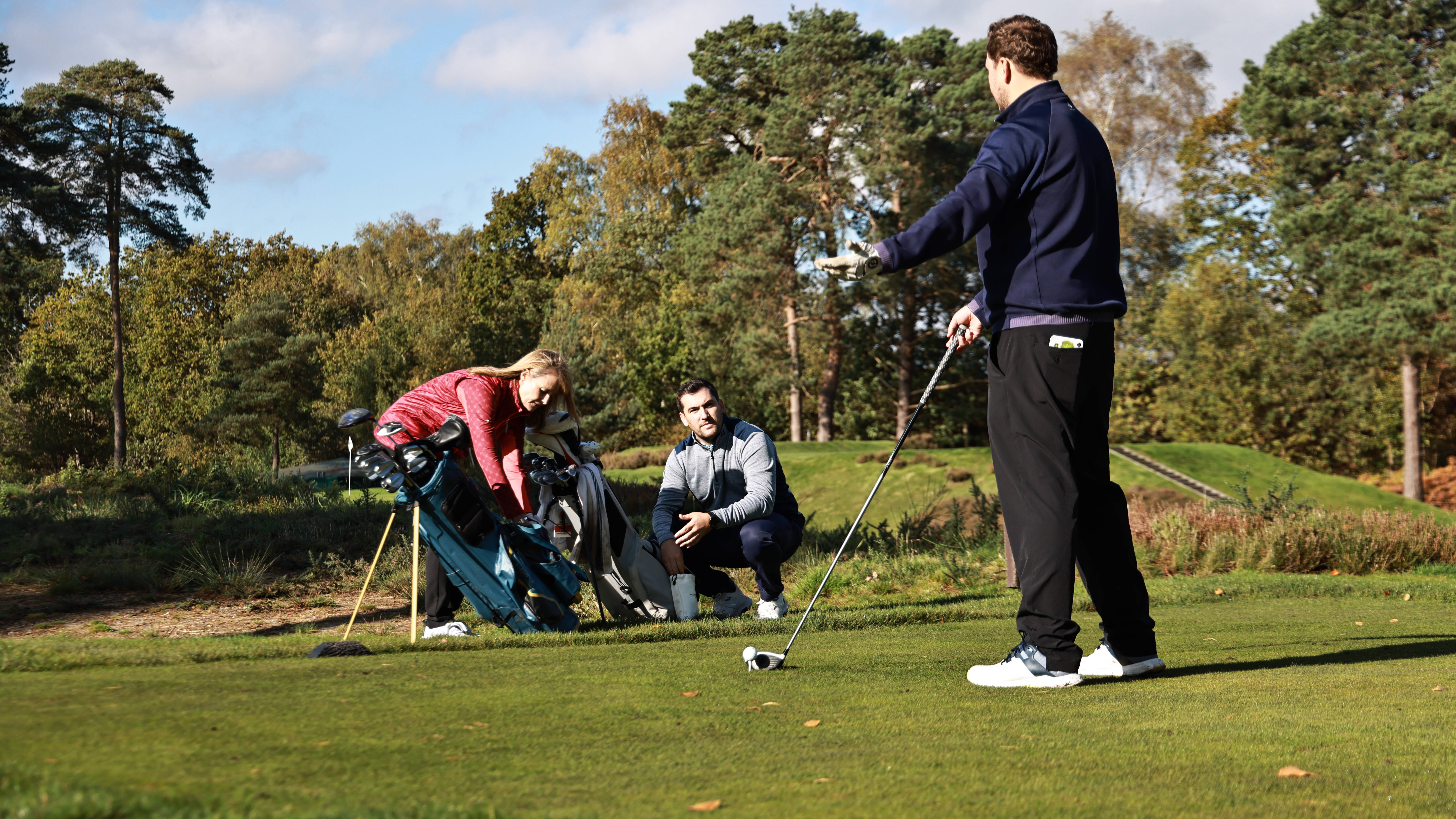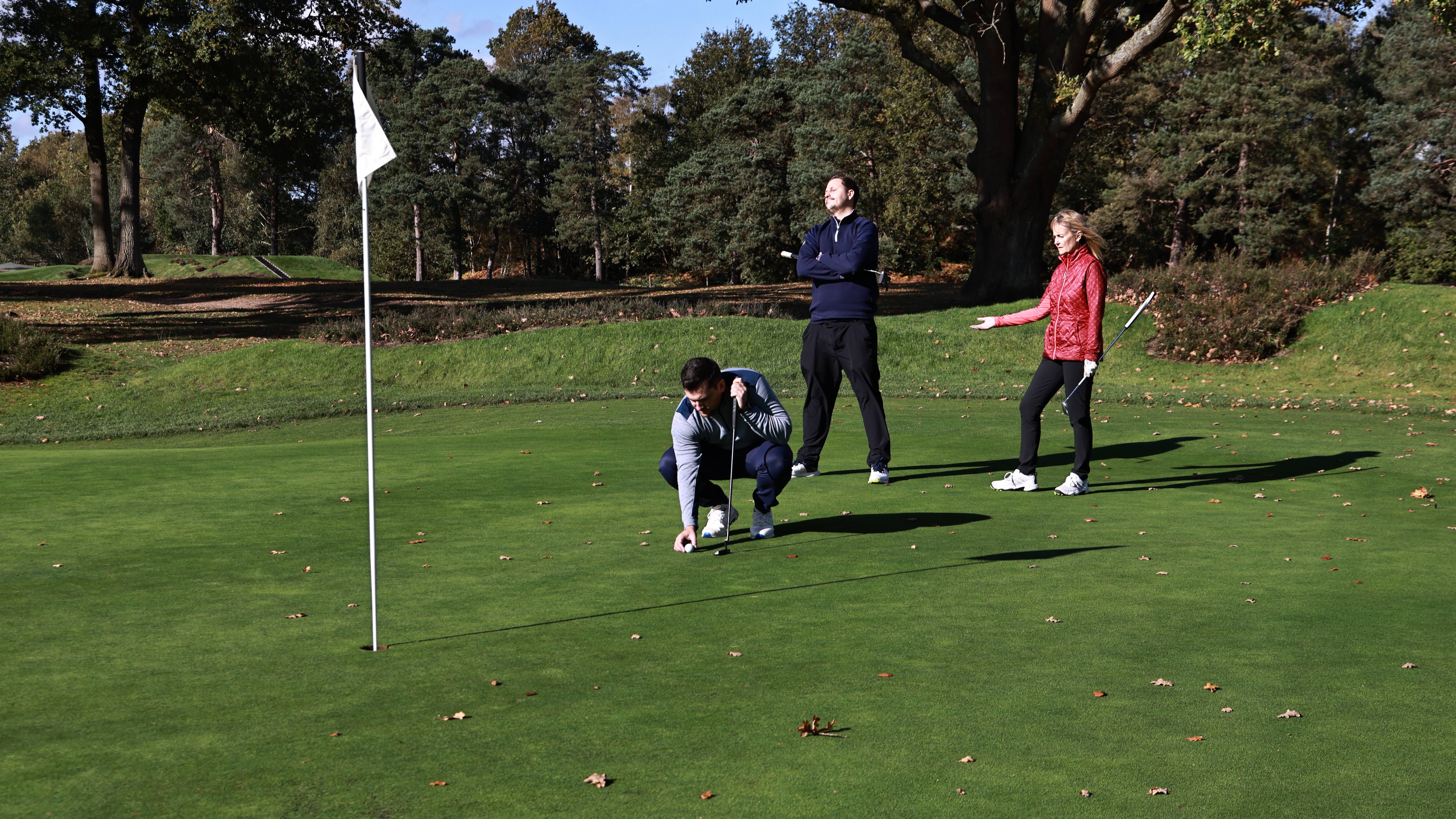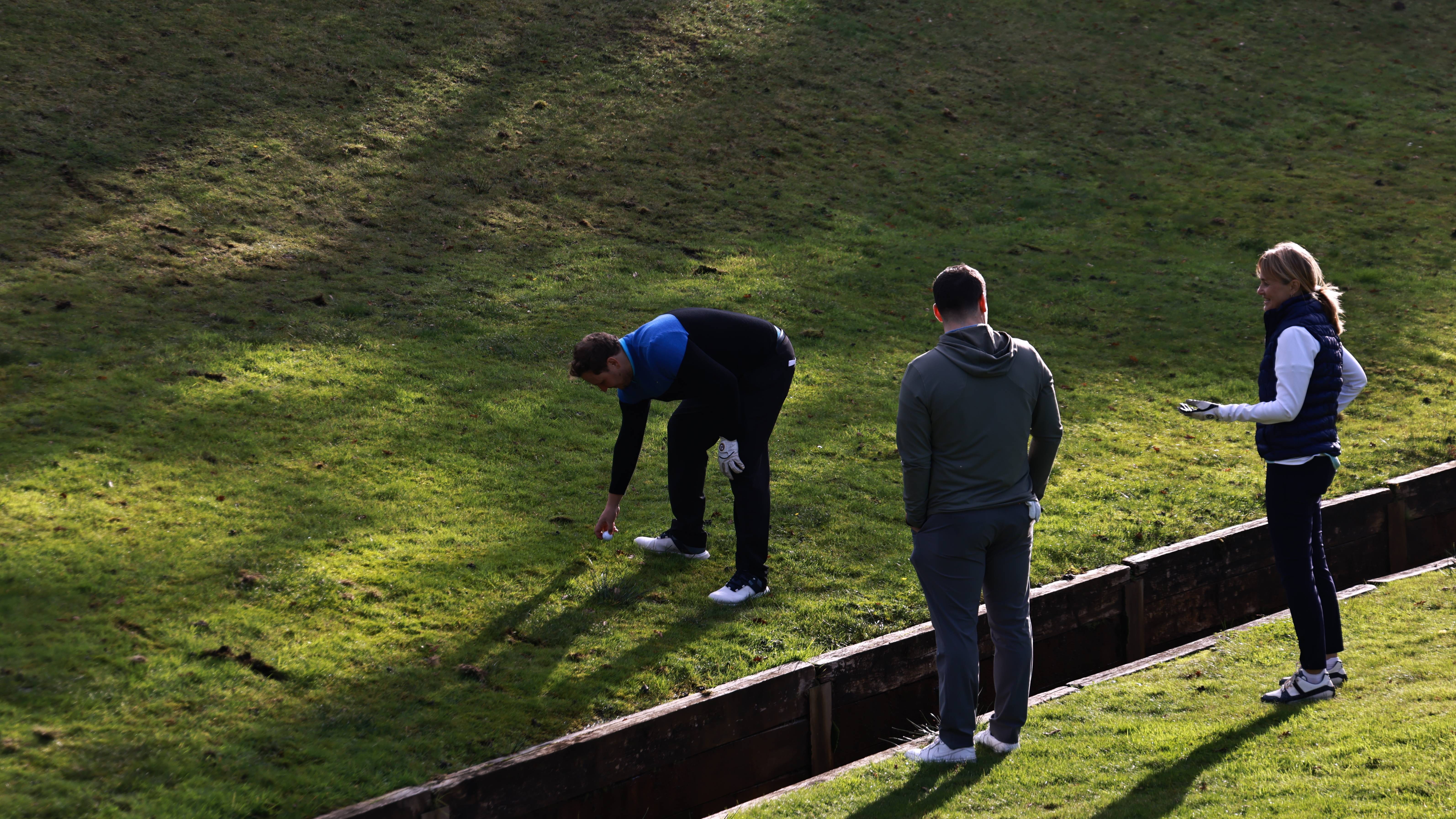I've Seen It All. Here's My Guide To Surviving Golf Gamesmanship
PGA Professional Emma Booth on how to defeat your opponent's mind games


Subscribe to the Golf Monthly newsletter to stay up to date with all the latest tour news, equipment news, reviews, head-to-heads and buyer’s guides from our team of experienced experts.
You are now subscribed
Your newsletter sign-up was successful
Want to add more newsletters?

Delivered daily
Daily Newsletter
Sign up for all the latest tour news, gear reviews, head-to-heads and buyer’s guides plus features, tips from our top 50 coaches and rules advice from our expert team.

Once a week
Kick Point
Sign up to our free Kick Point newsletter, filled with the latest gear reviews and expert advice as well as the best deals we spot each week.

Once a week
Women's Golf Edit
Sign up to our free newsletter, filled with news, features, tips and best buys surrounding the world of women’s golf. If you’re a female golfer, you won’t want to miss out!
Etiquette, integrity, honesty and respect are words that have long been synonymous with the game of golf, and rightly so. I feel very fortunate that I grew up playing this wonderful game because it instilled in me so many of these principles that reach far beyond the course and into other areas of life.
Yet as pure as golf’s reputation is on the outside, anyone who has played in club competitions or watched things get heated during the Ryder Cup and Solheim Cup know, there is another side to the game known as gamesmanship.
Gamesmanship is defined as the art of winning games by using various ploys and tactics to gain a psychological advantage.
Having grown up playing high level county and amateur golf, I’ve encountered my fair share of dubious tactics over the years and often from the most surprising of situations and people. I also know from coaching countless players how disruptive and infuriating it can be to those new to the dark arts of gamesmanship.
If you want to know how to spot, and more importantly, be impervious to gamesmanship tactics, read on!
Gamesmanship Or Just Clueless?
There are many new golfers who have taken up the game together in adult friendship groups and they have no concept of how to behave appropriately on the golf course. If you come across one of these golfers in the wild, it can be a shock to the system.
I’m no old school traditionalist, but having a basic understanding of golfing etiquette should be talked about as much as other core beginner skills. It can be jarring to have someone walk across your line, or talk loudly when you are hitting, but it’s important to know the difference between someone genuinely clueless and someone trying to throw you off your stride. If you think any advice you have on appropriate etiquette will be well received, then take the opportunity to talk about it. After all, we all had to start somewhere.
Subscribe to the Golf Monthly newsletter to stay up to date with all the latest tour news, equipment news, reviews, head-to-heads and buyer’s guides from our team of experienced experts.
There is a fine line between gamesmanship and cheating. Unlike cheating, gamesmanship does not break the rules, it relies on subtle tactics to put you under pressure, affect your timing or distract you. Here are some of the most recognisable forms and how to handle them. Some are very sneaky indeed!
Receiving Compliments
How can complimenting someone’s golf possibly put them off? Trust me it does, as it has the potential to break your flow and suddenly make you conscious of how you are hitting the ball. Look out for things like:
“Wow you hit that drive so well/far”
“Your putting is so solid”
“Have you always hit the ball so straight?”
Essentially it can take you out of the ‘zone’ and when playing well, that is the last thing you want to happen.
To deal with this, simply accept the compliment, but keep your focus on the outcome of what you are trying to do. Keep trusting your instincts and ability for that day and try to stay in the present.

Accept a compliment, but keep your focus on what you are trying to do
Slow Play/Deliberate Delays
As if we didn’t already know how disruptive slow play can be. Whether it is an opponent taking too long over a routine shot (a particular pet peeve of mine) or taking an age to read a putt, the effect is the same, it disrupts your concentration and flow, especially when employed at crucial times.
My advice is to wait it out, or play the game back by complimenting their dedication on taking the time to get things right. Try not to fixate on how long they are taking, distract yourself by looking at the scorecard, examine your own club, think about what you are going to have for dinner that night, anything to make sure you are not feeling the delay they are using to wind you up. Strive to be impervious to it.

Don't fixate on the slowness of your opposition
No Time for Pleasantries
Tiger was known for his iconic ‘Tiger stare’ that could make his playing partners and opponents feel like they had lost before even stepping onto the first tee. The amazing thing was that his unwavering, intensely focused gaze wasn’t even directed at a person, it was on what he was doing.
There were no friendly pleasantries; he was all about business and it definitely unnerved those competing against him. I suspect that you are not playing with the likes of Tiger but more like Wendy and Keith in a mixed semi-final club match, but that’s not to say Wendy’s laser beam focus is not somewhat intimidating.
The key to dealing with this is to play your own game in your own way, believe in your ability to focus when it is your turn and that will help you to stay fresh and not fatigued from concentrating so much.

To Gimme Or Not To Gimme
That is the question, and when it comes to match play it is one of my all-time favourites! Nothing throws an opponent off kilter quicker than not giving a short putt early on and then seeing them miss it.
The mind games involved in the gimme are something every golfer should become familiar with; being generous and giving a putt on the longer side can make opponents feel obligated to return the favour, not giving anything can be seen as tight and sets the tone for the game as tit for tat.
The tips I would offer… If you both find yourselves on the putting green before the game, have a look at how they practice their putting, do they look confident? When out on the course watch their body language, do they stride up to their putts or take lots of practice strokes? Use your observations to make a more informed decision on when to give and when not to give a putt.

Space Invader
Standing too close, loitering in your way, hovering near you when you have a tricky shot coming up are all ways that have been used to intimidate and distract. When playing county golf, I was regularly subjected to players standing too close. However, rather than putting me off I simply let them get on with it. I was clearly taking up more headspace for them if they were trying tactics like that.
If, however, you are faced with someone taking things a bit too far, there is nothing wrong with politely asking them to step back a bit, for the sake of safety. Remember the reason they are doing this is to get on your nerves, like a taunting sibling would by repeatedly poking you, but nothing will dampen their enthusiasm quicker than not reacting. So, if you can, rise above it.

You can always ask players to step back if they are loitering
Running Commentary
“Ooh these greens are running really fast today’
“It’s at least a two-club wind”
“Watch out for the water on the right”
“That’s a tough shot from there”
The difficult thing with this brand of gamesmanship is that it is disguised as being helpful, when it can be very off-putting and distracting. To deal with this, try not to engage, be polite, but limit your conversation with a few one word replies with little enthusiasm.
If you are a golfer that likes conversation between shots, try to change the subject, find some common ground. If not, try to limit your time being within earshot to just the tee and green. Or if you are feeling mischievous, try to outdo them; “Only a two-club wind? I reckon it’s more of a three-club wind” “A tough shot? Nah, this is a cake walk for me!” Basically, employ the tactic, if they’ve been to Tenerife, you’ve been to Elevenerife!
The exciting thing about this era of golf is that more people than ever are having a go and getting involved. Many will have crossed over from other sports, where sneaky gamesmanship tactics are actively encouraged. ‘Banter’ between playing groups is more noticeable than ever and when done in a way where the laugh can be shared, I’m all for it. If, however, behaviours start to creep too much into some of the above remember:
- You cannot control and are not responsible for the behaviour of others
- You can control how you react to things. If you struggle with this, work on it by asking yourself; if I let this get to me, will it serve me and help my golf or hinder my ability to play well
- If their behaviour is breaching the expected normal etiquette, it is okay to politely tell them
- Know the rules and format of play because that way you will be able to handle any rule discrepancies that may arise
- Pre-shot routines really are that important. When it comes to keeping composure and increasing your chances of success, a solid routine will help to keep you composed and ready for action
- Embrace the madness, the games where I have played with quirky characters or where strange situations have arisen are the ones that I remember, it’s all part of the rich tapestry of life
Emma has worked in the golf industry for more than 20 years. After a successful amateur career, she decided to pursue her true golfing passion of coaching and became a qualified PGA Professional in 2009. In 2015, alongside her husband Gary, who is also a PGA Professional, they set up and now run Winchester Golf Academy, a bespoke 24 bay practice facility offering not only all the latest technology but a highly regarded bistro. Emma is happy coaching all golfing abilities but particularly enjoys getting people into the game and developing programs to help women and juniors start and improve. Her 2022 Get into Golf program saw more than 60 women take up the game.
Emma is a member of TaylorMade’s Women’s Advisory Board, which works to shape the product offering and marketing strategy with the goal of making it the number one brand in golf for women. When not changing lives one swing tweak at a time Emma can be found enjoying life raising her three daughters and when time allows in the gym.
You must confirm your public display name before commenting
Please logout and then login again, you will then be prompted to enter your display name.
